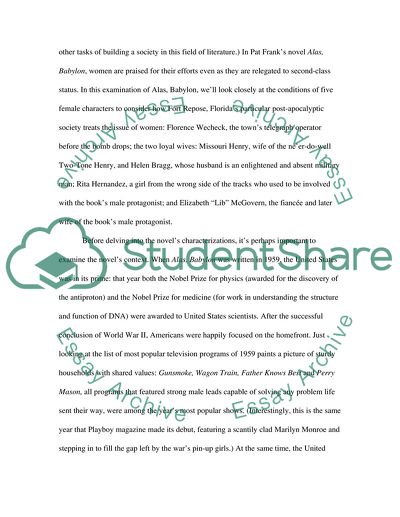Cite this document
(“The troubling position of women in Pat Franks Alas, Babylon Essay”, n.d.)
The troubling position of women in Pat Franks Alas, Babylon Essay. Retrieved from https://studentshare.org/literature/1559941-the-troubling-position-of-women-in-pat-franks-alas-babylon
The troubling position of women in Pat Franks Alas, Babylon Essay. Retrieved from https://studentshare.org/literature/1559941-the-troubling-position-of-women-in-pat-franks-alas-babylon
(The Troubling Position of Women in Pat Franks Alas, Babylon Essay)
The Troubling Position of Women in Pat Franks Alas, Babylon Essay. https://studentshare.org/literature/1559941-the-troubling-position-of-women-in-pat-franks-alas-babylon.
The Troubling Position of Women in Pat Franks Alas, Babylon Essay. https://studentshare.org/literature/1559941-the-troubling-position-of-women-in-pat-franks-alas-babylon.
“The Troubling Position of Women in Pat Franks Alas, Babylon Essay”, n.d. https://studentshare.org/literature/1559941-the-troubling-position-of-women-in-pat-franks-alas-babylon.


